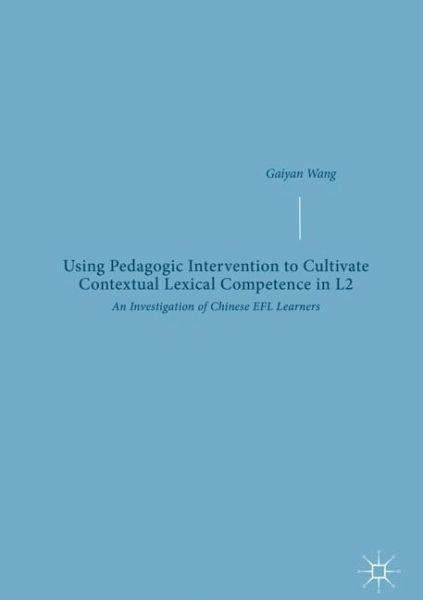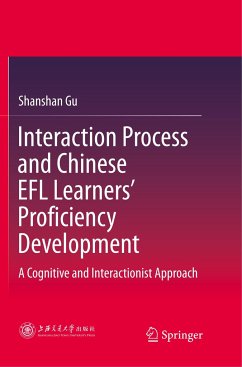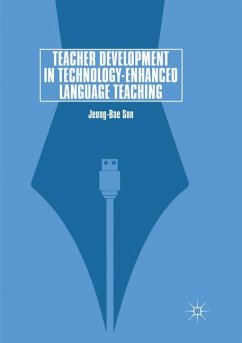
Using Pedagogic Intervention to Cultivate Contextual Lexical Competence in L2
An Investigation of Chinese EFL Learners
Versandkostenfrei!
Versandfertig in 6-10 Tagen
38,99 €
inkl. MwSt.
Weitere Ausgaben:

PAYBACK Punkte
19 °P sammeln!
This book challenges prevailing linguistic presumptions concerning contextual lexical meaning by examining whether pedagogic intervention targeted at raising Chinese EFL learners' awareness of the pragmatic nature of contextual lexical meaning can enhance the learners' contextual lexical inferencing competence (CLIC). CLIC is crucial to the development of a learners' vocabulary, reading ability and autonomy in reading. Through an empirical study conducted among a group of adult Chinese students of English, the author shows that the power of CLIC instruction lies mainly in its effectiveness in ...
This book challenges prevailing linguistic presumptions concerning contextual lexical meaning by examining whether pedagogic intervention targeted at raising Chinese EFL learners' awareness of the pragmatic nature of contextual lexical meaning can enhance the learners' contextual lexical inferencing competence (CLIC). CLIC is crucial to the development of a learners' vocabulary, reading ability and autonomy in reading. Through an empirical study conducted among a group of adult Chinese students of English, the author shows that the power of CLIC instruction lies mainly in its effectiveness in enhancing learners' self-confidence in making lexical inferences. This book will be of interest to researchers and students of applied linguistics, TESOL, language education, and for language professionals keen to extend their research experience.














